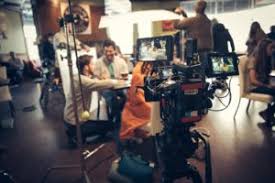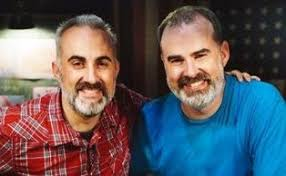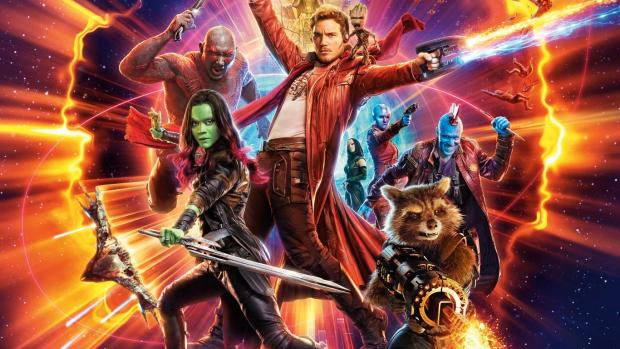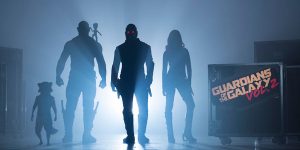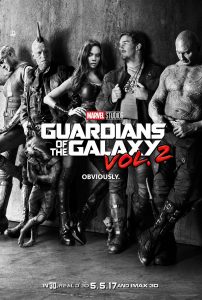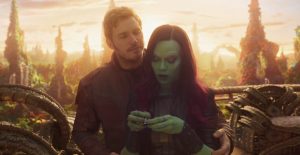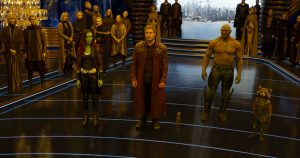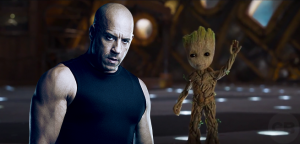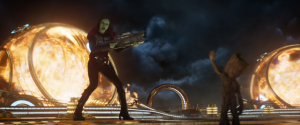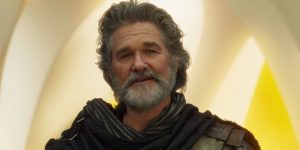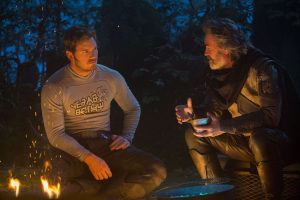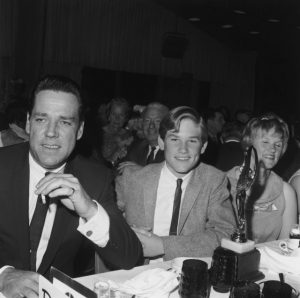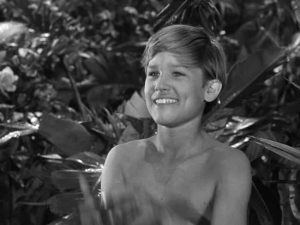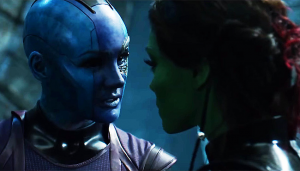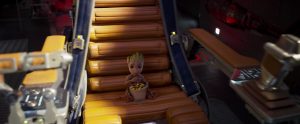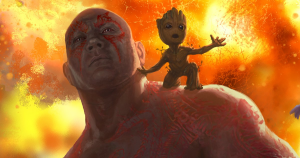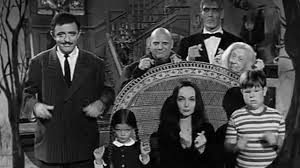SHORT TAKE:
Another family-endorsing, Christian-centered, Kendrick Brothers movie – this time following 50 years of one couple's epic parenting journey.
WHO SHOULD GO:
Anyone and everyone.
LONG TAKE:
Since 2003 Stephen and Alex Kendrick have focused their careers on making intelligent, funny, engaging, spiritually uplifting, eccumenically Christian themed movies which have jumped the chasm between "religious" movies and mainstream cinema to become an integral part of our popular culture.
Their first, 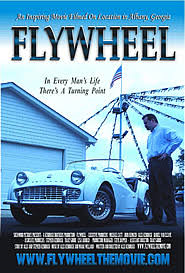 Flywheel, was a modern day Zacharias story about a used car salesman, originally intended only as a learning tool for the Kendrick Brothers' congregation at Sherwood Baptist Church in Albany, Georgia. Flywheel's astonishing success funded the next Kendrick movie,
Flywheel, was a modern day Zacharias story about a used car salesman, originally intended only as a learning tool for the Kendrick Brothers' congregation at Sherwood Baptist Church in Albany, Georgia. Flywheel's astonishing success funded the next Kendrick movie, 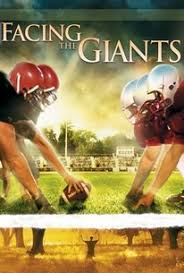 Facing the Giants in 2006, about a high school coach challenged with crises of family, career, and faith. Facing the Giants has the Death Crawl scene, five of the most inspirational minutes on sports "celluloid" I have ever watched.
Facing the Giants in 2006, about a high school coach challenged with crises of family, career, and faith. Facing the Giants has the Death Crawl scene, five of the most inspirational minutes on sports "celluloid" I have ever watched.  Fireproof in 2008, starring former child star Kirk Cameron, was next, about a fireman trying to rebuild his almost shattered marriage.
Fireproof in 2008, starring former child star Kirk Cameron, was next, about a fireman trying to rebuild his almost shattered marriage. 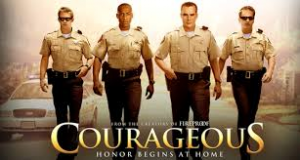 Courageous, in 2011, is their masterpiece, about four policeman and a civilian friend who confront their shortcomings as fathers. 2015 saw
Courageous, in 2011, is their masterpiece, about four policeman and a civilian friend who confront their shortcomings as fathers. 2015 saw 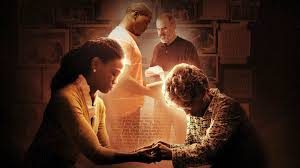 War Room about a marriage shuddering under the weight of deceit. This year the Kendricks bring us
War Room about a marriage shuddering under the weight of deceit. This year the Kendricks bring us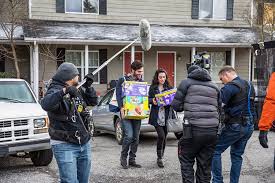 Like Arrows: The Art of Parenting.
Like Arrows: The Art of Parenting.
As overtly Christian themed and occasionally, what mainstream audiences consider, "preachy" movies, these often fall through the cracks of the average movie goers attention.  That is a shame because these movies are funnier, warmer, savvier, more clever, more insightful, and will leave you feeling far more satisfied than most of the movies that get a lot of popular "love".
That is a shame because these movies are funnier, warmer, savvier, more clever, more insightful, and will leave you feeling far more satisfied than most of the movies that get a lot of popular "love".
Movies like Titanic and The Notebook get a lot of publicity and huge budgets but they are shallow views of relationships which never get beyond the infatuation stage, rarely include children, and never deal with dirty diapers, resolving petty spousal fights, money issues or any of the other million challenges which face couples on a daily basis. 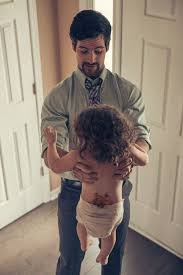 Like Arrows presents a more realistic view of a marriage with far more depth, examining a relationship that endures in true heroic fashion with love, and describes a romance that perseveres for 50 years DESPITE dealing with family estrangements, money problems, career strains, and ……..catastrophically dirty diapers.
Like Arrows presents a more realistic view of a marriage with far more depth, examining a relationship that endures in true heroic fashion with love, and describes a romance that perseveres for 50 years DESPITE dealing with family estrangements, money problems, career strains, and ……..catastrophically dirty diapers.
In Like Arrows, Charlie (Alan Powell) and Alice (Micah Hanson) are a cute young dating couple. A terrified Alice surprises Charlie with the news that she is unexpectedly pregnant.  Charlie "mans up" and the rest of the movie follows them
Charlie "mans up" and the rest of the movie follows them 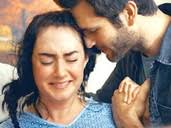 through five decades of marriage and parenting four children.
through five decades of marriage and parenting four children.  For most of the movie Powell and Hanson are aged. But in the later scenes the elderly couple is portrayed by Garry Nation and Elizabeth Becka. I met Mr. Nation at a Christian Film Festival in connection with his starring role in
For most of the movie Powell and Hanson are aged. But in the later scenes the elderly couple is portrayed by Garry Nation and Elizabeth Becka. I met Mr. Nation at a Christian Film Festival in connection with his starring role in 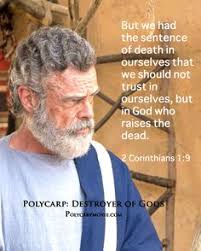 Polycarp. He is as gracious and patient off screen as his character is on.
Polycarp. He is as gracious and patient off screen as his character is on.
Charlie and Alice’s family will seem very familiar. 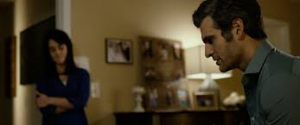 They are ordinary people
They are ordinary people 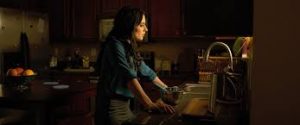 who work hard and strive to do their best.
who work hard and strive to do their best.  But ultimately they discover their best is woefully insufficient
But ultimately they discover their best is woefully insufficient 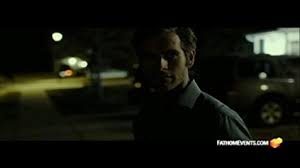 to raise morally strong and family connected children without God at the center of their lives.
to raise morally strong and family connected children without God at the center of their lives.
 Again Charlie "mans up,"
Again Charlie "mans up," 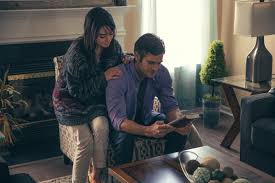 takes responsibility for the family direction and leads them to a more spiritually fulfilling way of life,
takes responsibility for the family direction and leads them to a more spiritually fulfilling way of life, 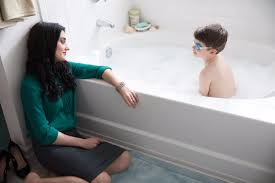 including spending more quantity (not just a little "quality") time with their kids, at church and in prayer.
including spending more quantity (not just a little "quality") time with their kids, at church and in prayer.
The acting is good, the writing natural, often funny and occasionally even profound – Charlie’s best friend 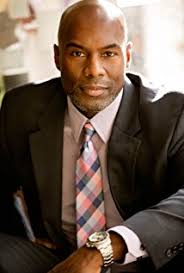 Kenneth (Joseph Callender) offers a disillusioned and tired Charlie advice on parenting: "The days are long but the years are short."
Kenneth (Joseph Callender) offers a disillusioned and tired Charlie advice on parenting: "The days are long but the years are short."
The title, Like Arrows, comes from Psalm 127: "Like arrows in the hands of a warrior are children…." They are, as Mr. Kendrick explains, the messages parents send into the future. 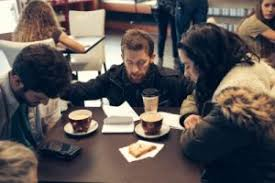 And, as the movie demonstrates,
And, as the movie demonstrates, 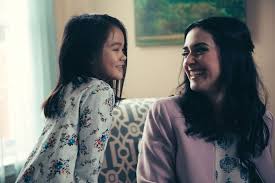 parents have an unshirkable, irreplaceable responsibility to be sure those arrows are strong and well guided enough to get to their intended destination and that resilience and confidence can best be crafted by working with the Hands of God.
parents have an unshirkable, irreplaceable responsibility to be sure those arrows are strong and well guided enough to get to their intended destination and that resilience and confidence can best be crafted by working with the Hands of God.
Like Arrows is also the launching point for the new website
 which offers free seminars, sessions and classes on parenting. I’ve checked the website out and while it is a little awkward to maneuver through it is worth the effort. Video sessions are about 6 minutes long and could be done on a daily basis. Registration and access are FREE.
which offers free seminars, sessions and classes on parenting. I’ve checked the website out and while it is a little awkward to maneuver through it is worth the effort. Video sessions are about 6 minutes long and could be done on a daily basis. Registration and access are FREE.
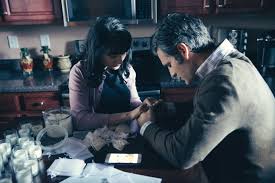 A lot of advice they give would have been considered common sense in previous generations but given the family-hostile culture in which we find ourselves today, the concepts of self and child discipline, lifetime committed marriages, spousal faithfulness, church attendance, prayer, and supervision of one’s child can be innovative life saving ideas to younger couples.
A lot of advice they give would have been considered common sense in previous generations but given the family-hostile culture in which we find ourselves today, the concepts of self and child discipline, lifetime committed marriages, spousal faithfulness, church attendance, prayer, and supervision of one’s child can be innovative life saving ideas to younger couples.
So endorse and encourage these family affirming films by going to see them. Check out Like Arrows where and when available or get it on DVD. Show your kids – likely future parents themselves, inform other young couples with this movie, show friends.  Enjoy a 50 year love story with far more substance to it than popular infatuation stories which talk a good game and are fluffy fun to watch but are really only the cotton candy filler that substitutes for the true meat and potatoes commitment demonstrated in movies such as Like Arrows.
Enjoy a 50 year love story with far more substance to it than popular infatuation stories which talk a good game and are fluffy fun to watch but are really only the cotton candy filler that substitutes for the true meat and potatoes commitment demonstrated in movies such as Like Arrows.

